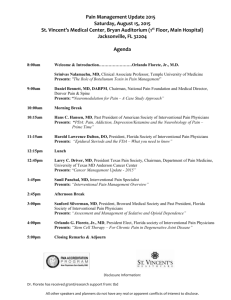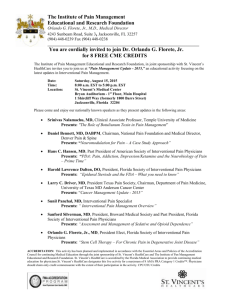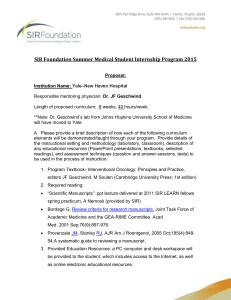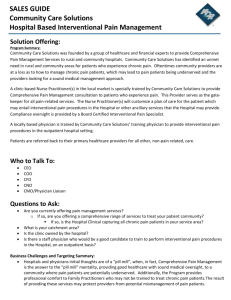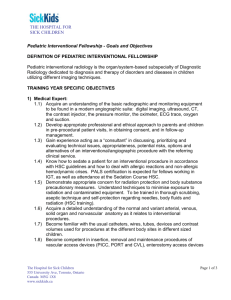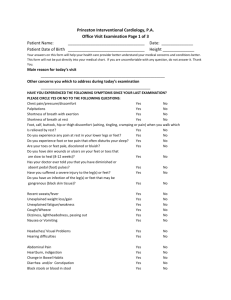Draft for Review - American Society Of Interventional Pain Physicians
advertisement
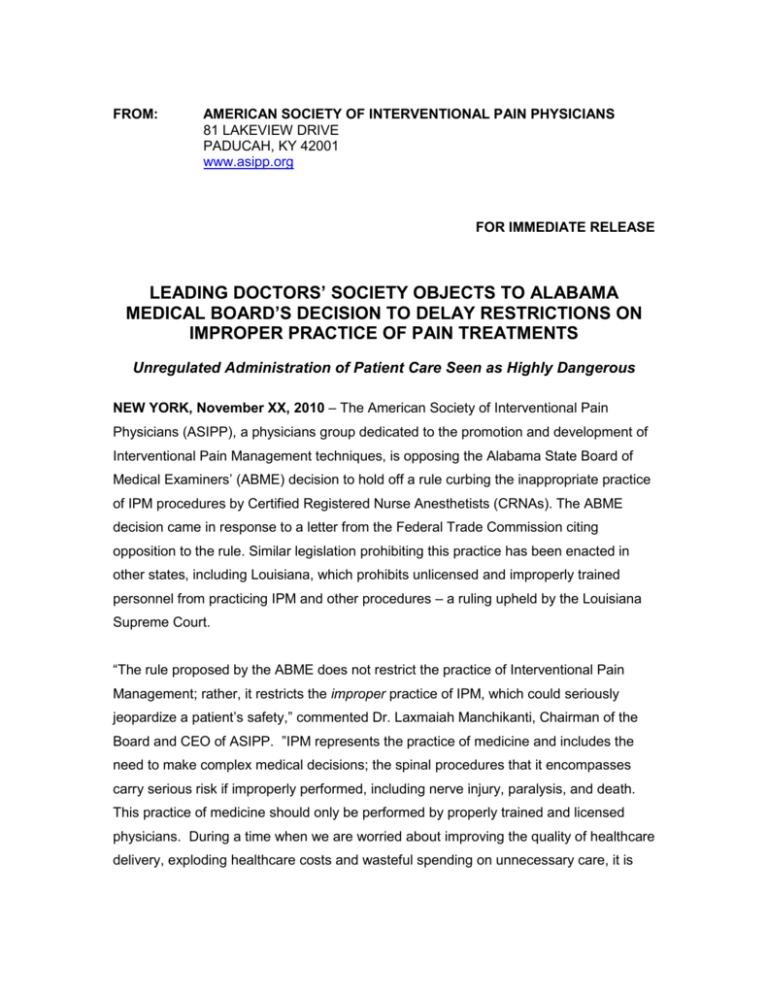
FROM: AMERICAN SOCIETY OF INTERVENTIONAL PAIN PHYSICIANS 81 LAKEVIEW DRIVE PADUCAH, KY 42001 www.asipp.org FOR IMMEDIATE RELEASE LEADING DOCTORS’ SOCIETY OBJECTS TO ALABAMA MEDICAL BOARD’S DECISION TO DELAY RESTRICTIONS ON IMPROPER PRACTICE OF PAIN TREATMENTS Unregulated Administration of Patient Care Seen as Highly Dangerous NEW YORK, November XX, 2010 – The American Society of Interventional Pain Physicians (ASIPP), a physicians group dedicated to the promotion and development of Interventional Pain Management techniques, is opposing the Alabama State Board of Medical Examiners’ (ABME) decision to hold off a rule curbing the inappropriate practice of IPM procedures by Certified Registered Nurse Anesthetists (CRNAs). The ABME decision came in response to a letter from the Federal Trade Commission citing opposition to the rule. Similar legislation prohibiting this practice has been enacted in other states, including Louisiana, which prohibits unlicensed and improperly trained personnel from practicing IPM and other procedures – a ruling upheld by the Louisiana Supreme Court. “The rule proposed by the ABME does not restrict the practice of Interventional Pain Management; rather, it restricts the improper practice of IPM, which could seriously jeopardize a patient’s safety,” commented Dr. Laxmaiah Manchikanti, Chairman of the Board and CEO of ASIPP. ”IPM represents the practice of medicine and includes the need to make complex medical decisions; the spinal procedures that it encompasses carry serious risk if improperly performed, including nerve injury, paralysis, and death. This practice of medicine should only be performed by properly trained and licensed physicians. During a time when we are worried about improving the quality of healthcare delivery, exploding healthcare costs and wasteful spending on unnecessary care, it is imperative that procedures be restricted to physicians who have received the extensive training in all aspects of pain care.” Interventional Pain Management is a relatively new subspecialty involving interventional techniques to diagnose and treat complex painful conditions. It requires the medical knowledge and skill of a physician, plus the expertise and experience of a well-trained pain specialist. The practice requires comprehensive and complex medical decisions, delivered in conjunction with formally trained interventional skills. Well-trained Interventional Pain Physicians have finished medical school (4 years), a medical internship (1 year), a residency program (3-5 years), complete a fellowship (1-2 years), and have passed the highly competitive specialty certification exam. “Even a licensed physician without specialized training would not be able to practice IPM appropriately, let alone someone who has never been to medical school and only trained to do nursing,” remarked Xiulu Ruan, MD, Vice President of the Alabama Society of Interventional Pain Physicians. “The bottom line is, Interventional Pain Management, a subspecialty of pain medicine, is completely within the scope of medicine, not nursing, period.” “To allow CRNAs to practice pain medicine independently is disastrous for the medical profession across the board. The argument for better access to care by the FTC is irrelevant as the care we are talking about is medical care, not nursing care, which is what a CRNA is trained to provide. This is not cost-effective but rather, it is dangerous and actually costs more,” added Manchikanti. About The American Society of Interventional Pain Physicians ASIPP’s mission statement is to promote the development and practice of safe, high quality, cost-effective interventional pain management techniques for the diagnosis and treatment of pain and related disorders, and to ensure patient access to these interventions. Founded in 1998 by Chairman of the Board and CEO Laxmaiah Manchikanti, MD, ASIPP is a rapidly growing not-for-profit organization that supports the access to interventional techniques and the needs of physicians who practice accountable Interventional Pain Management across the country. Since its inception, the organization has had substantial impact on the practice of interventional pain management, resulting in an impressive list of major achievements. In 2005, ASIPP succeeded in passing The National All Schedules Prescription Electronic Reporting Act (NASPER), which provides and improves patient access to quality care, and protects patients and physicians from the deleterious effects of controlled substance misuse, abuse and trafficking. ASIPP is headquartered in Paducah, KY and currently has 4,500 members. For more information, visit www.asipp.org or call 270.554.9412. Ext. 215 # # # *This e-mail is a service of Rubenstein Public Relations, Inc. Should you no longer wish to receive these e-mails please click opt-out
